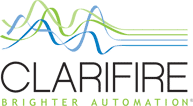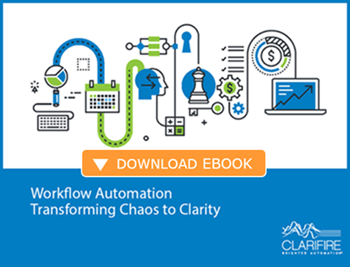Over 40 years ago, physicians created the first ambulatory surgery center (ASC). These centers are a more convenient, less expensive alternative to a hospital. Physicians pioneered these new facilities with the goal to have more control of their surgical practices.
With added autonomy over scheduling, training, facility design, etc., also comes additional control over technology. ASCs have the freedom to innovative and use the newest technologies to lower costs, enhance the patient experience and improve quality and safety.

What factors are affecting the technology needs of today’s ASCs?
ASCs need to keep costs low and have the ability to scale quickly with flexible technology solutions in order to react quickly to change:
Cost Focus – According to The Ambulatory Surgery Center Association (ASCA), Medicare reimburses ASCs only 55 percent of the amount paid to hospital outpatient departments for performing the same services. Translation: ASCs have to perform the same services, but at a much lower rate.
Scalability – According to Guy David, Associate Professor of Healthcare Management at the Wharton School of Business, hospitals used to control approximately 90% of outpatient services, but now control only 50% of a much larger pie[1]. As a result, ASCs need to invest in technologies that not only save time and reduce costs but also scale to serve more patients.
Flexibility – The Federal requirements governing ASCs are changing. They are changing in favor of ASCs, so it’s in the best interest of ASCs to react quickly. According to the ASCA, ASCs are required to meet certain conditions set by the federal government in order to participate in the Medicare program.
For example, The Centers for Medicare & Medicaid Services (CMS) requires ASCs to establish a program for identifying and preventing infections, maintaining a sanitary environment and reporting outcomes to appropriate authorities. Additionally, new legislation introduced in the ASC Quality and Access Act of 2017 (H.R. 1838/S. 1001) will require CMS to post quality metrics of ASCs and Hospital Outpatient Departments (HOPDs) online in a “side-by-side comparison,” so ASCs will have to supply that data[2].
Additionally, ASCs will have the need to share data with other care providers as accrediting bodies, such as The Joint Commission, begin to focus on the transition of care. The common theme is being able to establish and support best practices while capturing data in a reportable, shareable fashion.
What technology could ASCs benefit from?
ASCs may have the most state of the art medical equipment, but they still need operationalized business practices that include a mobile audit solution. A mobile audit solution provides the ability to perform on demand audits—such as Quality and Safety audits—via a mobile device.
Leadership can create audits, quickly edit audits, schedule/assign audits and have a view over all audit activities across an organization. This capability would help ASCs capture more data faster and immediately report that data to governing bodies such as CMS and accrediting organizations such as The Joint Commission.
For example, The Joint Commission’s relatively new Total Hip and Knee Replacement program focuses on transitions of care from pre-surgery to rehabilitation[3]. Filling gaps within the transition of care will require ASCs to invest in software that is interoperable and able to communicate with external systems/facilities…a robust audit solution would communicate with a rehabilitation center (for example) to share data.
As icing on the cake, ASCs would save time and money be eliminating paper waste, manual data entry and spreadsheets. A mobile audit solution would be low cost to implement, it would reduce costs and allow flexibility as regulatory requirements change. It checks all the boxes!
What should ASCs know before buying a mobile audit solution?
Know that offerings differ between vendors, but an ASC should look for a platform that offers the following audits “out of the box”:
- Quality and Safety Audits
- Infection Control Audits
- Joint Commission Readiness Audits (the solution should be able to easily pivot to meet the audits requirements of any ASC Accrediting Organization)
To get the absolute best value from an audit solution, an ASC should choose a provider that (1) allows users to build, publish and execute their own audits, (2) provides the ability to report on audit data dynamically without the need for IT or development resources and (3) focuses on simplicity, yet maintains key system-wide workflow capabilities, such as role definition, user assignments and automated launching of audits. Lastly, the key function to look for is visibility into system wide metrics via a dashboard, which will empower ACSs with a view across an entire organization.
What’s the end result?
Gaining of instantaneous efficiency and results using real-time data to effectively manage healthcare compliance. ASCs will realize ROI through the ability to:
- Rapidly identify internal control concerns
- Mitigate risk by deploying resources to the most high-risk areas
- Access critical data with visibility that is unachievable with paper
After implementing a mobile audit solution, ASCs will be able to focus on what matters most—the patient.
Related Articles
Providing Transparency on Your Level of Patient Care with Child HCAHPS
4 Ways Merging Purposeful Rounding and Mobile Technology Can Increase Patient Experience Scores
Smarter Technology Helps Hospitals Target What Patients Care About Most
[1] Lawton R. Burns, Guy David, and Lorens A. Helmchen. Population Health Management. April 2011, 14(2): 69-77. https://doi.org/10.1089/pop.2010.0021
[2] Ambulatory Surgery Center Association, Legislation Overview, ASCA’s Campaign for Advancing Surgical Care, http://www.advancingsurgicalcare.com/legislation/legislationoverview , November 2017.
[3] The Joint Commission, Advanced Certification for Total Hip and Knee Replacement, https://www.jointcommission.org/certification/adv_cert_total_hip_total_knee_replacement.aspx, November 2017.
Lauren Walling



